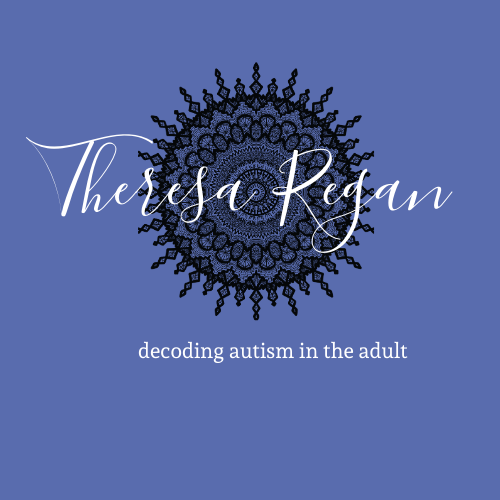Recognizing Attempts at Regulation on the Autism Spectrum
Description
Join Dr. Regan for the final episode of a four part series on regulation and dysregulation on the autism spectrum. This episode focuses on recognizing when an individual is attempting to regulate and using this information to partner toward the best outcome.
New Course for Clinicians - Interventions in Autism: Helping Clients Stay Centered, Connect with Others, and Engage in Life
New Course for Clinicians: ASD Differential Diagnoses and Associated Characteristics
Dr. Regan's Resources
Book: Understanding Autism in Adults and Aging Adults, 2nd ed
Audiobook
Book: Understanding Autistic Behaviors
Autism in the Adult website
Resources for Clinicians
Transcript of Episode
1
00:00:00,340 --> 00:00:03,370
This is Dr Theresa Regan.
2
00:00:03,380 --> 00:00:10,830
I'm a neuropsychologist and I specialize in understanding the way that the brain is related to emotions,
3
00:00:10,830 --> 00:00:13,000
behavior, cognition --
4
00:00:13,000 --> 00:00:16,430
thinking skills -- and also personality.
5
00:00:16,440 --> 00:00:18,910
I'm a certified autism specialist.
6
00:00:18,920 --> 00:00:24,060
I'm the director of an autism diagnostic clinic for adults in Illinois.
7
00:00:24,070 --> 00:00:26,650
And I'm the mother of a teen on the spectrum.
8
00:00:27,740 --> 00:00:35,960
This is our final episode of a four point series on regulation and dysegulation on the autism spectrum.
9
00:00:36,440 --> 00:00:37,640
In the first episode,
10
00:00:37,640 --> 00:00:39,800
we talked about what those words mean.
11
00:00:39,800 --> 00:00:49,130
So regulation has to do with the nervous system's ability to help us stay centered with alertness...
12
00:00:49,140 --> 00:01:02,480
whether we are able to wake up quickly and efficiently in the morning and are able to wind down to sleep in the evening ... that has to do with regulation of our alertness,
13
00:01:02,490 --> 00:01:04,900
Also regulation of attention...
14
00:01:04,900 --> 00:01:14,000
so sometimes we may feel spacey and inattentive and other times we may have too much hyper focus,
15
00:01:14,000 --> 00:01:19,350
too attentive to details that aren't really helping our situation.
16
00:01:19,360 --> 00:01:21,530
And also third,
17
00:01:21,530 --> 00:01:24,370
the regulation of emotions and behavior.
18
00:01:24,370 --> 00:01:35,970
And so this would be what we typically call fight, flight, or freeze modes when someone's overwhelmed and they may revert to an outburst or a meltdown,
19
00:01:35,980 --> 00:01:39,230
they may be an individual who has quieter struggle...
20
00:01:39,230 --> 00:01:41,930
So they may have flight reactions --
21
00:01:41,930 --> 00:01:43,590
like I'm leaving school,
22
00:01:43,590 --> 00:01:46,580
I can't come out of my room,
23
00:01:46,580 --> 00:01:48,340
I'm withdrawing.
24
00:01:48,350 --> 00:01:52,880
I'm hiding ... psychologically or physically.
25
00:01:53,740 --> 00:01:57,440
And some people have freeze reactions that ... I'm physically present,
26
00:01:57,440 --> 00:01:59,430
but I'm really shut down.
27
00:01:59,430 --> 00:02:07,660
I'm not psychologically present ... and it may even take the form of a dissociative episode like this person is shut down...
28
00:02:07,670 --> 00:02:10,520
They don't remember this conversation later.
29
00:02:10,520 --> 00:02:14,360
They're really just not able to be fully present.
30
00:02:15,440 --> 00:02:18,590
Another form of freeze reaction
31
00:02:18,590 --> 00:02:25,130
could be this expression of psychological stress through the physical body.
32
00:02:25,140 --> 00:02:29,330
So a person who's having what we call nonepileptic seizures.
33
00:02:29,340 --> 00:02:39,150
Those are seizures that are expressions of psychological struggle rather than based in electrical changes in the brain.
34
00:02:39,160 --> 00:02:42,420
That would be in this category.
35
00:02:42,420 --> 00:02:49,150
People who have feelings of physical pain in the
More Episodes
Join Dr. Regan for the fifth episode of the Lifespan of a Household series. Today's episode focuses on topics important to autistic individuals who are parenting young children.
Autism in the Adult website
Resources for professionals
Video Visits
Video Courses
Published 10/19/24
Join Dr. Regan for the 4th episode in the Lifespan of a Household series. Today's episode focuses on topics important to the autistic individual who is preparing for parenting.
Autism in the Adult website
Resources for professionals
Video Visits
Video Courses
Published 10/06/24
Published 10/06/24


